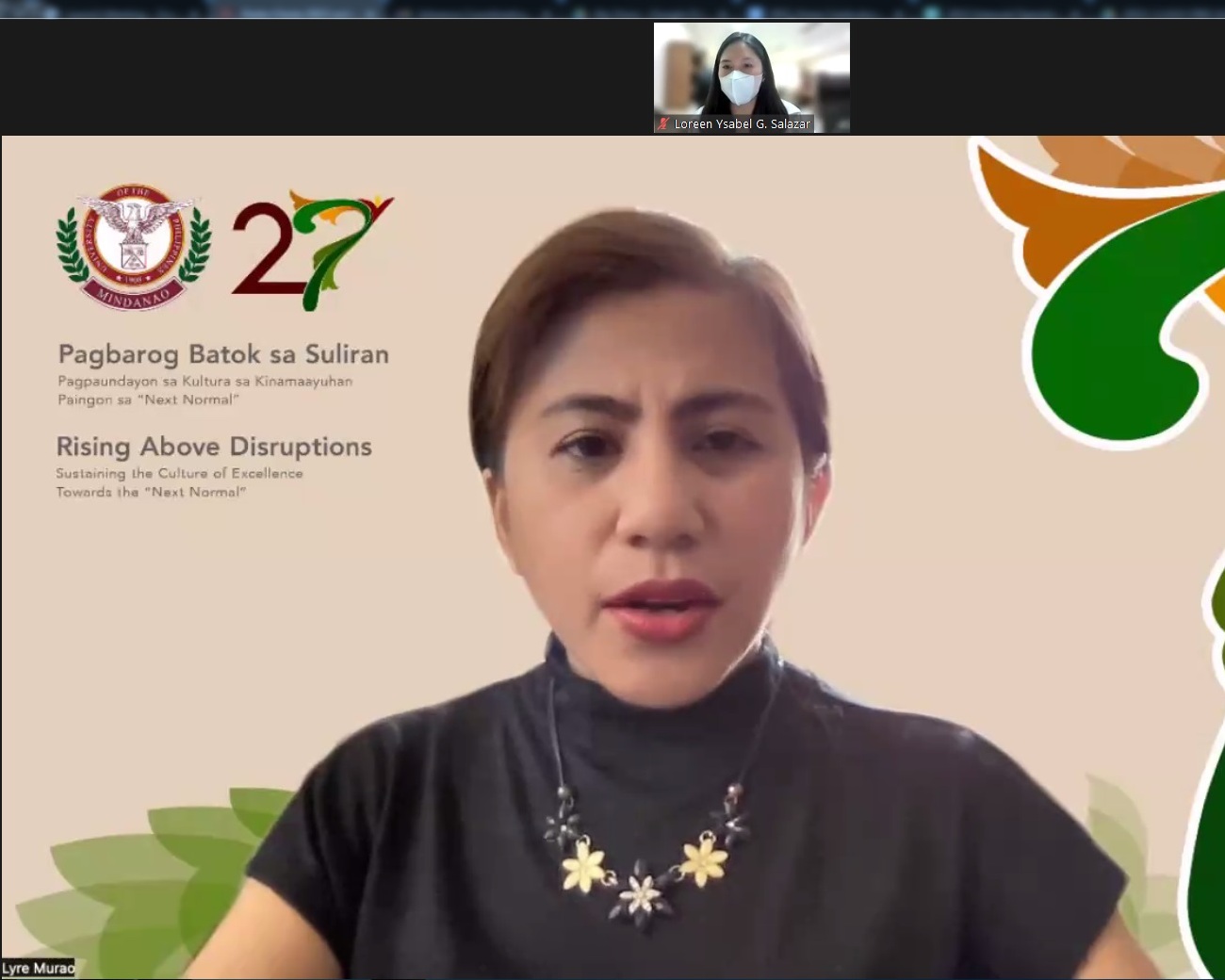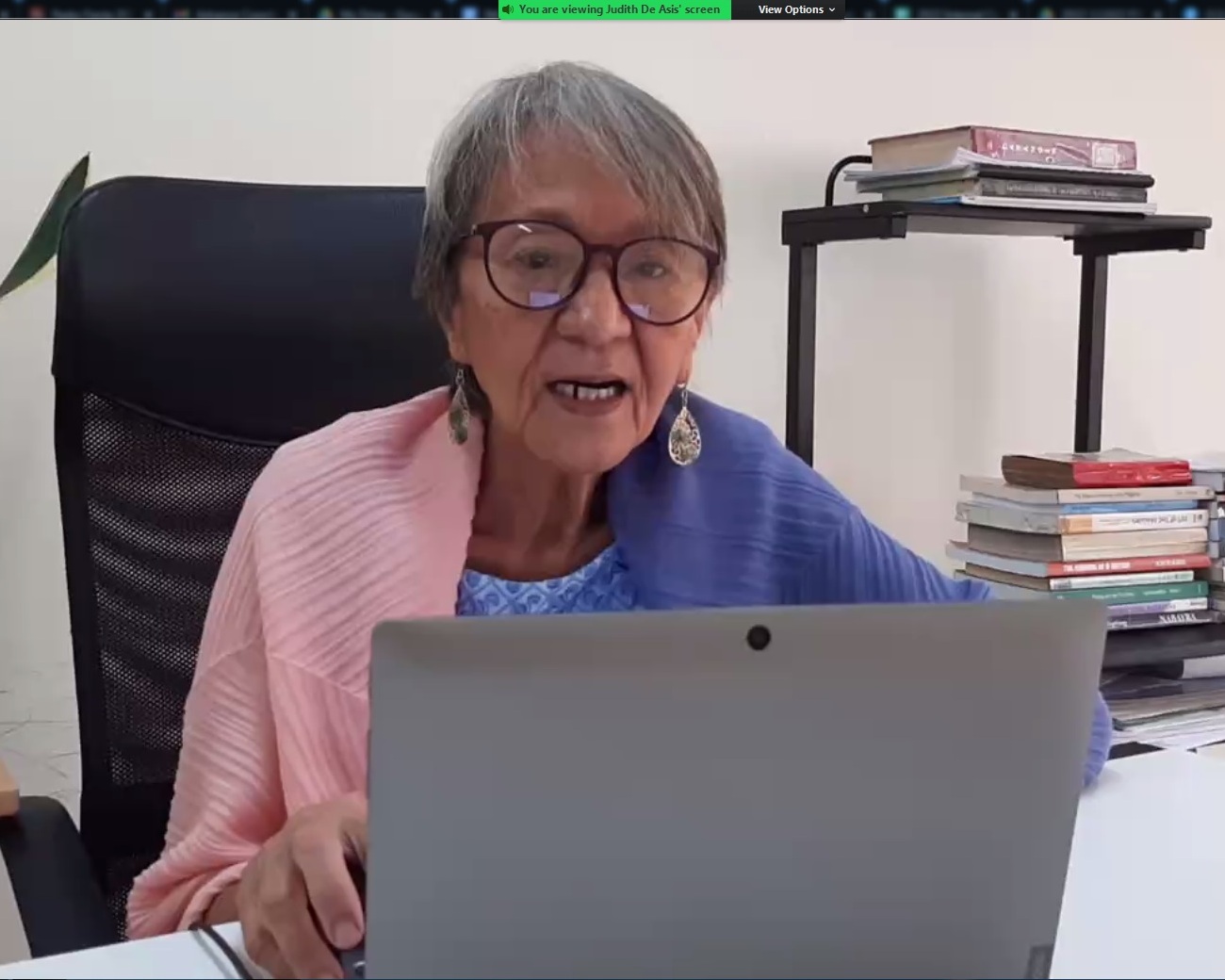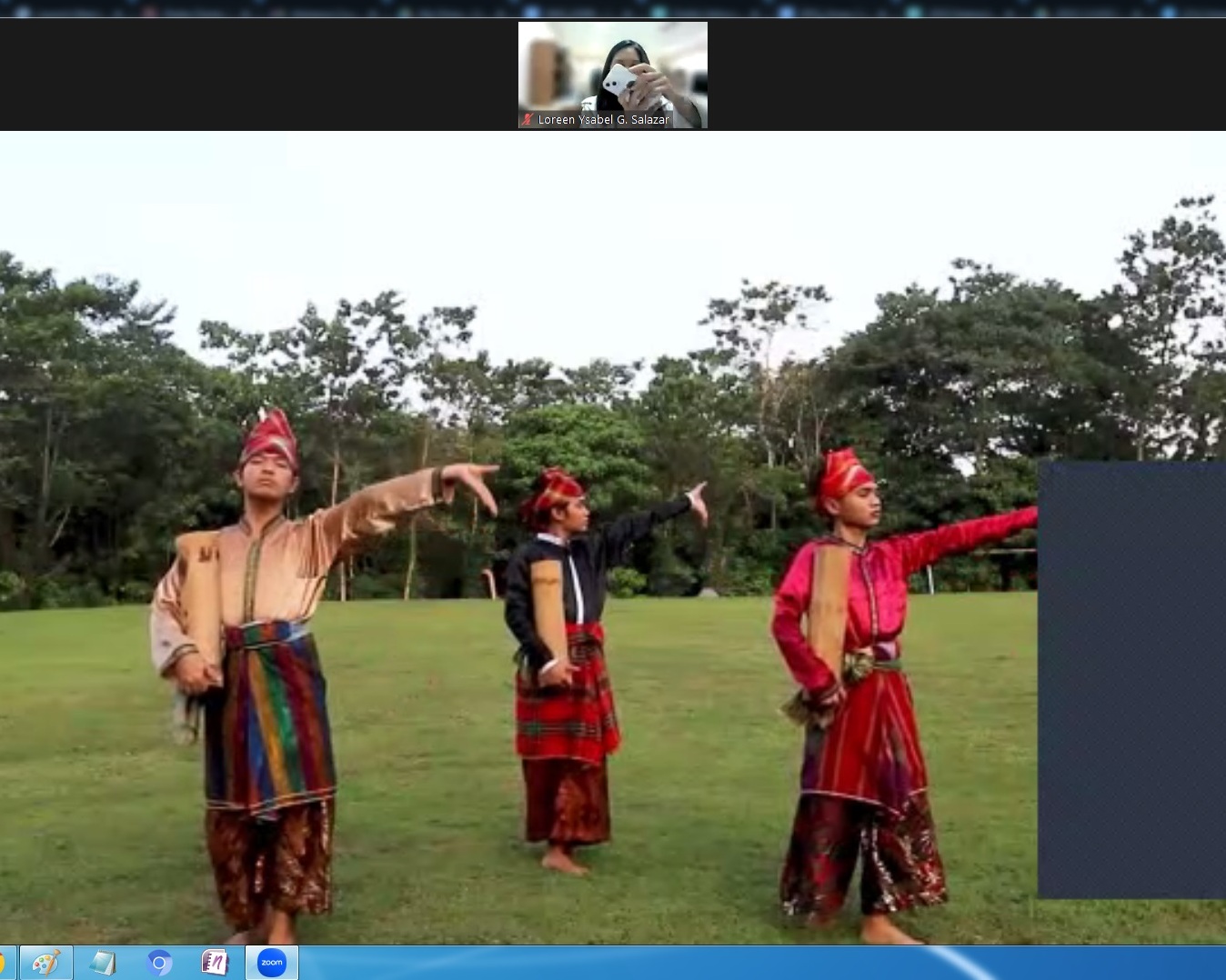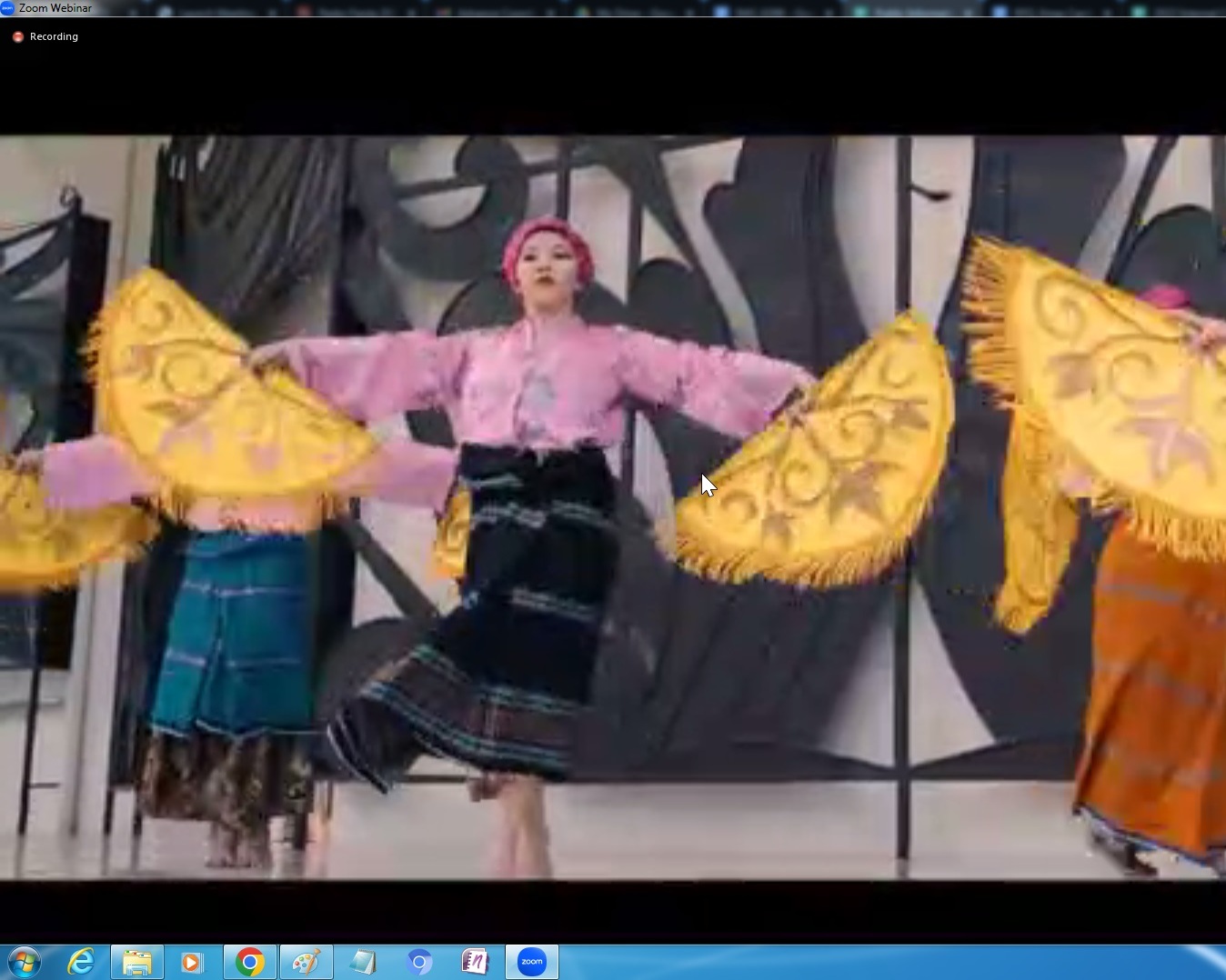The GomBurZa martyrdom & Mindanao, 2022
 |
 |
| Chancellor Lyre Anni Murao | Dean Raymundo Pavo |
 |
 |
| Lualhati Abreu | Emmanuel Nabayra |
 |
 |
| Asst. Prof. Theresa Gallardo | Prof. Sharon Obsioma Bulaclac |
 |
 |
| The UP Mindanao Dance Ensemble |
The experience of Philippine nationhood began in the southern island of Mindanao, where sultanates in Butuan, Sulu, and other parts of Mindanao, exercised sovereignty through political, economic, and diplomatic actions from the pre-colonial and colonial periods up until the 20th century, said UP Mindanao Senior Lecturer Lualhati Abreu. Mindanao's Darangen epic, though fictional, described the political and cultural environment of pre-colonial Mindanao, she said. Sultan Kudarat and other historic Mindanao leaders created sovereign states, forged alliances with other states as far as China, and campaigned against the colonizers, said Prof. Sharon Obsioma Bulaclac of Mindanao State University. The GomBurZa martyrdom in the northern Philippine island of Luzon, on the other hand, hastened the movement for a single Philippine nation, said former DSS Senior Lecturer Emmanuel Nabayra in a recorded lecture, although there had been "some 300 Filipino uprisings" during the Spanish colonization period. The GomBurZa martyrdom, placed alongside Mindanao island's "suppressed" or neglected historical narratives and literary epics, showed Philippine nationhood's parallel origins and development in the northern and southern islands. By combining the martyrdom of the Filipino priests Fr. Mariano Gomez, Fr. Jose Burgos, and Fr. Jacinto Zamora on February 17, 1872, with Mindanao's historical and literary events, the forum showed the development of Philippine nationalism and its expressions. These were among the connections drawn by speakers on “Kamalayan: Pamana ng GomBurZa @150,” UP Mindanao's theme for the observance of the 150 years of the GOMBURZA martyrdom.* Professor Raymundo Pavo, Assistant Professor Theresa Gallardo, student Kate Baltazar, and Assistant Professor Janus Cabazares contributed to the discussion, touching on the Filipino concepts of "kamalayan," (consciousness), "alay," (offering) "malay," (awareness), and "laya" (freedom). Chancellor Lyre Anni Murao hoped, in her welcome remarks, that the forum would inspire the audience to draw lessons from the epics and the histories.
Read Chancellor Murao's Welcome Remarks here: Welcome Remarks from Chancellor Murao
* "Tribute to the GOMBURZA’s Martyrdom and Role in Shaping the Narratives of Nation-Building: Mindanawon Epics as Pre-Colonial Roots of Philippine Nationalism," organized by the Department of Social Sciences of the College of Humanities and Social Sciences (CHSS-DSS) on November 10, 2022.
Kindly give your feedback to our service here: Citizen/Client Satisfaction Survey
